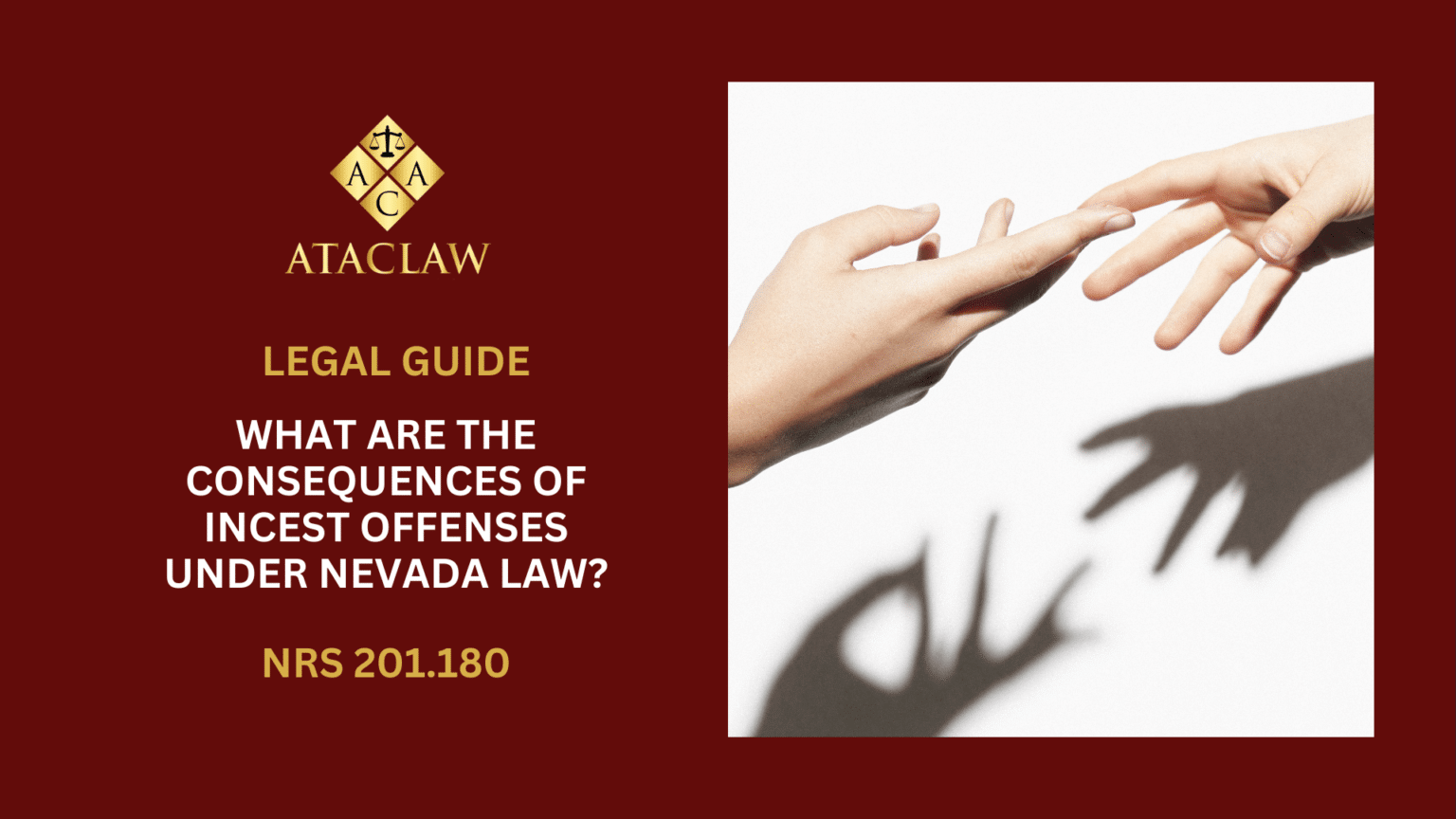Understanding the types of offenses and their corresponding penalties is crucial for residents and legal professionals alike. Among the various statutes, one that often raises questions concerns the Nevada law NRS 201.180, which addresses the crime of incest. Nevada law takes a firm stance against incest, which it defines as intermarriage or engaging in sexual relations between relatives closer than second cousins. The severity of the offense is reflected in its classification as a category A felony, emphasizing the gravity with which the state views such actions. We’ll dive further into the details of this law, shedding light on its implications, the seriousness of the offense, and the penalties involved.
How Does Nevada’s Legislation Define and Penalize Incest?
The legal framework defines incest as the act where individuals, who are directly related closer than second cousins, either enter into matrimonial bonds, engage in sexual relations, or partake in adultery. These statutory prohibitions serve to minimize the risk of genetic anomalies that are more prevalent with close familial breeding.
Distinctly separate from sexual assault or rape, as outlined under NRS 200.366, incest in Nevada stands as a punishable offense even with mutual consent between the parties involved. This distinction underscores the inherent illegality of incestuous acts irrespective of the adult participants’ agreement, positioning rape as a violation rooted in the absence of consent.
An individual could potentially face charges for both incest and rape emanating from the same incident. An illustrative scenario could involve a paternal figure engaging in non-consensual sexual activities with his adult daughter, therefore, implicating him in acts of both rape (due to the lack of consent) and incest (given their close familial ties). Conversely, should there have been mutual consent, both individuals could be prosecuted for incest, highlighting the legal system’s unequivocal stance against incestuous relationships.
What Are the Penalties for Incest According to Nevada’s NRS 201.180?
Under Nevada’s legal code, incest is deemed a Category A felony, which represents the most serious classification of criminal offenses. Judicial discretion may allow for probation if the involved party’s psychosexual assessment indicates a low likelihood of repeated offense. In the absence of this mitigating factor, the law prescribes the following sanctions for incest:
- Incarceration ranging from two years to a life term in Nevada State Prison, and
- Potential fines up to $10,000, determined at the judge’s discretion.
Moreover, those convicted must adhere to lifelong supervision as per NRS 176.0931 and comply with sex offender registry mandates. Certain scenarios may permit early release from perpetual supervision, based on individual case evaluations.
In sentencing, judges in Nevada often weigh several elements, including the relational degree between the involved parties, their ages — whether they are both adults, both minors, or one of each — and the existence of consent in the incident.
Take, for instance, two adult relatives who are barely related by blood and opt into a consensual relationship. Their sentence might be on the milder side, classifying their act as one without direct victims. Yet, a situation involving an adult committing a sexual act against a younger sibling without consent would likely result in a more severe sentence, highlighting the gravity of underage victimization and non-consensual aggression.
What Are the Possible Defenses Against Incest Charges in Nevada?
The nuances of Nevada’s incest laws create a narrow scope for what constitutes an illegal act, offering potential avenues for charge dismissal if defense counsel can demonstrate that the accused’s actions don’t align with those explicitly forbidden. Key defense strategies include:
- Absence of Sexual Intercourse: Given that Nevada’s statute specifically targets sexual intercourse among closely related individuals, any variation from this act may not fall under the scope of incest. If evidence of sexual intercourse is lacking, the charges might be invalidated.
- Lack of Legal Marriage: The prohibition extends to marriage among close relatives. A defense might argue that despite appearing as a couple, the accused did not undergo a lawful marriage ceremony, potentially undermining the prosecutorial case.
- Questioning Blood Relation: Often, individuals use terms like cousins or siblings for close acquaintances, lacking a biological connection. Additionally, instances of adoption or extramarital birth might sever the biological tie necessary for an incest charge. Proving a lack of genetic linkage or highlighting distant familial relations (e.g., second cousins or beyond) could result in case dismissal.
Other defenses could focus on procedural errors, such as rights violations during the investigation, including coerced confessions or illegal searches by officials.
Is It Possible to Seal a Record of Incest Conviction in Nevada?
In Nevada, records of incest convictions are ineligible for sealing, highlighting the necessity for competent legal representation to potentially reduce or dismiss the charge. Conversely, if charges are dismissed, sealing can typically be pursued right away.
For further legal assistance and to discuss your case with an expert, don’t hesitate to contact ATAC LAW.




